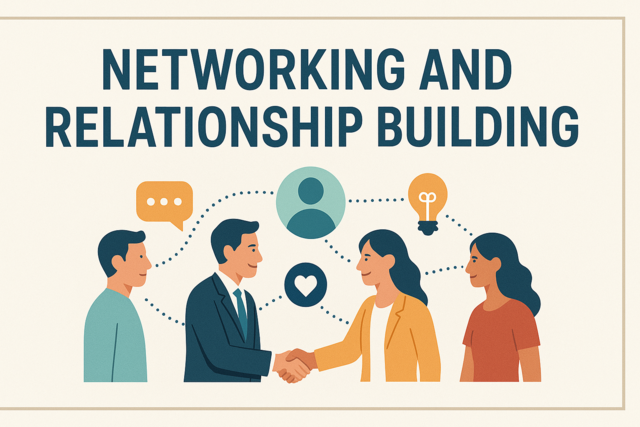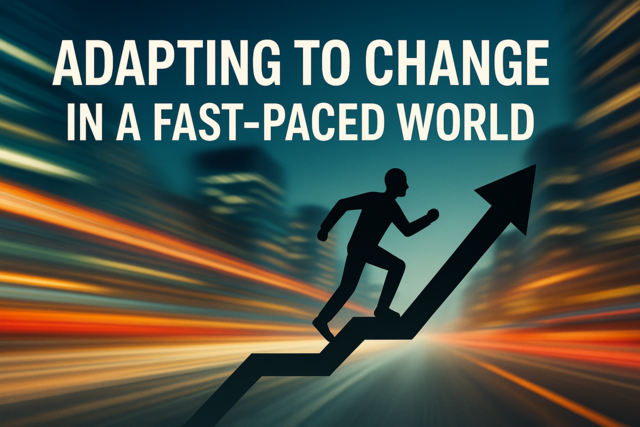Online Class: Neuroscience of Trauma — How the Brain Processes and Heals from Trauma

no certificate
with CEU Certificate*
-
15Lessons
-
21Exams &
Assignments -
6Hours
average time -
0.6CEUs
Course Description
Imagine unlocking the deepest mysteries of the human mind, understanding the intricate dance between neurons that has the power to heal even the deepest of wounds. Dive into the "Neuroscience of Trauma: How the Brain Processes and Heals from Trauma" course--an enlightening journey where scientific discovery meets personal empowerment. This isn't just another online class; it's an invitation to transform your perspective on trauma, equipping you with knowledge that could change lives, starting with your own.
From the very moment you begin this course, a window opens into the complex world of trauma and its profound impact on the human brain. This isn't merely an exploration of facts; it's a narrative that weaves together the stories held within our neural pathways, illuminating how experiences shape us and how, remarkably, we can reshape ourselves. You'll embark on a compelling narrative that elucidates how the brain operates under stress and which pathways light up during moments of crisis, how those same pathways can dim to leave scars--or be rerouted towards healing.
Imagine the power of understanding how the amygdala, the brain's alarm system, dictates responses that can mean the difference between harm and survival. You'll explore the fascinating workings of this critical component and how it fits into the larger puzzle of our neural choreography. But understanding alone is not our goal; through this exploration, you'll find hope, seeing firsthand the mind's incredible capacity for resilience and recovery.
As you delve deeper, the magical world of the hippocampus awaits--a true memory keeper. Learn not just how trauma imprints on memory, but how these scars can be gently rewritten, allowing you to reclaim narratives that seemed forever lost. Alongside the prefrontal cortex, you'll discover how emotional regulation is not just possible but achievable, even after the most disruptive of experiences.
For those grappling with the specter of chronic trauma, this course shines a light on the long-term consequences but also opens doors to renewal and restoration through the astounding lens of neuroplasticity. Witness the astounding capability of the human brain to adapt and overcome, learning how to engage this plasticity to foster healing in yourself and others.
Beyond the biology, the course peers into the world of neurotransmitters, the silent communicators that can hold the keys to unlocking trauma's grip. Understanding their role can empower you to make informed decisions about recovery paths. And with a look into the nuances of developmental trauma, you'll gain insights into its profound effects and learn strategies that foster supportive environments for the most vulnerable, paving pathways to healthier futures.
Embrace the revolutionary insights into genetics and epigenetics that demystify hereditary influences, revealing how trauma responses are affected but not irrevocably dictated by our lineage. You're invited to explore what lies beyond the genes, in a realm where therapeutic interventions like Cognitive Behavioral Therapy and EMDR forge bridges to renewed well-being.
Our journey doesn't just stop at understanding therapy--it extends to engaging the healing power of mindfulness and meditation, tools that not only ease the mind but transform its very structure. And we know that healing is not solitary; thus, we delve into the critical importance of social support, inviting the community and connection that are vital to recovery.
This course concludes not with an end, but with a look to the future of neuroscience research, an exciting glimpse into emergent possibilities and the ever-evolving understanding of trauma healing, leaving you with inspiration and a call to be part of this transformative journey.
This is more than a course; it's an adventure in understanding and empowerment, unparalleled in scope and depth, offering you the tools to not only comprehend trauma but to rise above it. Enroll today and step into a world where your newfound knowledge can light the way for you and others toward a life where past limitations transform into future strengths.
- Completely Online
- Self-Paced
- 6 Months to Complete
- 24/7 Availability
- Start Anytime
- PC & Mac Compatible
- Android & iOS Friendly
- Accredited CEUs

Course Lessons
Lesson 1. Trauma: A Journey Through History and Healing
Historically, trauma was perceived in physical terms, encapsulated by injuries from combat until Freud and Janet elucidated its psychological facets, challenging these narrow confines. Present-day, trauma-informed care and therapies like mindfulness, CBT, and EMDR underscore the brain's adaptability, offering renewed pathways for recovery from past traumas.Lesson 2. Exploring the Neurobiological Roots of Stress: How Our Brains Cope and Heal
The hypothalamus activates the HPA axis during stress, leading to cortisol release, crucial for immediate stress management but problematic when prolonged. Mindfulness and physical activity can help rebalance this system, preventing chronic stress-related health issues like cardiovascular disease.Lesson 3. Instinctive Reactions: Understanding Fight, Flight, Freeze
Biological reactions to trauma culminate in autonomic shifts managed smoothly by the amygdala and hypothalamus, facilitating fight-or-flight actions like increased heart rate and glucose mobilization. The lesser-discussed freeze response hinges on parasympathetic activity and muscle tension, compelling a stilled state under overwhelming scenarios, mimicking nature's defense postures such as feigned inactivity.Lesson 4. Decoding Fear: How the Amygdala Manages Traumatic Memories
The amygdala is integral in managing fear and memory storage during traumatic experiences, often overreacting in stress conditions, which can lead to PTSD. By engaging therapies and mindfulness practices, individuals can learn to regulate the amygdala's hypersensitivity and foster emotional stability.Lesson 5. The Resilient Hippocampus: Healing After Trauma
The hippocampus, amid trauma's disruptions, maintains a capacity for adaptation, crucial for memory and emotional regulation. Strategies leveraging neuroplasticity and holistic therapies hold promise for trauma recovery, highlighting the brain's resilience.Lesson 6. Enhancing Healing through Empathy and Cultural Wisdom
The prefrontal cortex plays a crucial role in managing emotions post-trauma, using neuroplasticity to facilitate cognitive restructuring and promote resilience through practices like mindfulness and goal setting. Balancing PFC function with innovative therapies aids emotional regulation, highlighting its impact on physical and mental health recovery.Lesson 7. Brain Alterations and Recovery Paths in Chronic Trauma
Prolonged exposure to stressors inflicts considerable strain on brain function, with hyperactivity of the amygdala and shrinkage of the hippocampus creating overlapping cycles of anxiety and memory disarray. Neuroplasticity and neurogenesis provide hope for reversing some of the trauma-induced changes, alongside lifestyle adjustments supporting these biological processes.Lesson 8. Resilience in Neurons: How the Brain Rebounds from Trauma
The ability of neuroplasticity to alter brain functions offers promising avenues for trauma survivors to regain lost abilities. Essential lifestyle factors, such as cognitive therapies and physical activities, can stimulate new neural pathways, reinforcing this potential.Lesson 9. Exploring Neurotransmitters: Pathways to Healing Trauma
Resilience is portrayed as a multifaceted trait encompassing personal, communal, and technological dimensions, reinforcing the human capacity to overcome challenges. The lesson concludes with an inspirational note on the enduring nature of resilience, emphasizing empathy, inclusivity, and adaptability as central themes.Lesson 10. Building Resilient Communities through Trauma-Informed Practices
Innovative advancements in trauma treatment, including digital mental health tools and precision-based interventions, leverage neuroimaging and genetic research to improve targeted therapies. Traditional mind-body practices like yoga and mindfulness are increasingly recognized for their efficacy in trauma recovery, encouraging participants to develop emotional regulation and self-awareness.Lesson 11. Why Your Ancestors' Trauma Matters: The Science Explained
Lesson Summary 1: The lesson explores the genetic and epigenetic components of trauma, highlighting how environmental influences can alter gene expression and pass emotional scars through generations. By examining scientific studies on both humans and animals, it illuminates the mechanisms by which hereditary trauma operates and underscores the potential for therapeutic intervention to break these cycles.Lesson 12. From Conditioning to Cognition: The Evolution of CBT's Impact on Trauma Recovery
Lesson Summary 4: Neuroscientific studies validate the efficacy of both CBT and EMDR; CBT shows measurable brain function changes like decreased amygdala activity, while EMDR normalizes limbic system responses. Incorporating virtual reality with CBT and adapting EMDR for telehealth positions these therapies as accessible and adaptable treatment options for trauma.Lesson 13. Meditation and Trauma: Rewiring the Brain
Understanding trauma's neurobiological influences paves the way for targeted therapeutic interventions, addressing both psychological impact and potential substance use. Personalized therapy and lifestyle changes foster resilience and healing, illustrating the potential for profound recovery and growth post-trauma.Lesson 14. The Neurobiology of Social Support: Foundations for Trauma Recovery
Cultural norms significantly affect trauma recovery, with collectivist societies providing robust communal support, often resulting in better outcomes compared to individualistic cultures. Engaging in altruistic actions further fortifies this dynamic, with reciprocal benefits fostering personal and communal well-being.Lesson 15. Trauma, Neuroplasticity, and Resilience
Machine learning and AI are revolutionizing neuroimaging in trauma research, predicting therapy responses and aiding personalized treatment. By understanding societal impacts of trauma through neuroimaging studies, evidence-based approaches and policy changes can target systemic change and promote mental health resources.
Learning Outcomes
- Define the historical evolution of trauma understanding, highlighting key figures and shifts from physical to psychological perspectives.
- Identify how trauma affects physiological processes in the brain, using insights from contemporary neuroscience research.
- Define the role of the amygdala and its impact on stress response and emotional regulation, particularly in trauma survivors.
- Evaluate therapeutic interventions like mindfulness and cognitive-behavioral therapy for their effectiveness in promoting neural resilience and recovery from trauma.
- Define the roles of the amygdala and hypothalamus in triggering the brain's immediate response to trauma.
- Describe how the freeze response is regulated by the parasympathetic nervous system and the dorsal vagal complex.
- Demonstrate understanding of how the amygdala processes traumatic memories by explaining its role in emotional response and memory consolidation related to trauma.
- Identify therapeutic interventions that can modulate amygdala activity, promoting better emotional regulation and resilience in trauma recovery contexts.
- Define how the hippocampus contributes to memory processing and how trauma alters its function.
- Identify therapeutic strategies that leverage neuroplasticity to address trauma-induced hippocampal damage.
- Demonstrate active listening techniques to foster trust and support in trauma-informed peer communication.
- Identify nonverbal communication strategies that enhance connection and safety in trauma recovery environments.
- Demonstrate mastery of lesson content at levels of 70% or higher.
Additional Course Information

- Document Your Lifelong Learning Achievements
- Earn an Official Certificate Documenting Course Hours and CEUs
- Verify Your Certificate with a Unique Serial Number Online
- View and Share Your Certificate Online or Download/Print as PDF
- Display Your Certificate on Your Resume and Promote Your Achievements Using Social Media

Choose Your Subscription Plan
No Certificate / No CEUs
This course only
| Includes certificate | X |
| Includes CEUs | X |
| Self-paced |

|
| Instructor support |

|
| Time to complete | 6 months |
| No. of courses | 1 course |
Certificate & CEUs
This course only
| Includes certificate |

|
| Includes CEUs |

|
| Self-paced |

|
| Instructor support |

|
| Time to complete | 6 months |
| No. of courses | 1 course |
Certificates & CEUs
Includes all 600+ courses
| Includes certificate |

|
| Includes CEUs |

|
| Self-paced |

|
| Instructor support |

|
| Time to complete | 12 Months |
| No. of courses | 600+ |
Certificates & CEUs
Includes all 600+ courses
| Includes certificate |

|
| Includes CEUs |

|
| Self-paced |

|
| Instructor support |

|
| Time to complete | 24 Months |
| No. of courses | 600+ |
Related Courses
-
 6 hours
0.6 CEUs
Healing from Narcissism: Paths to Recovery and Healthy Dynamics
+ More Info
6 hours
0.6 CEUs
Healing from Narcissism: Paths to Recovery and Healthy Dynamics
+ More Info
-
 5 hours
0.5 CEUs
Generational Patterns: How Narcissism Perpetuates Dysfunction
+ More Info
5 hours
0.5 CEUs
Generational Patterns: How Narcissism Perpetuates Dysfunction
+ More Info
-
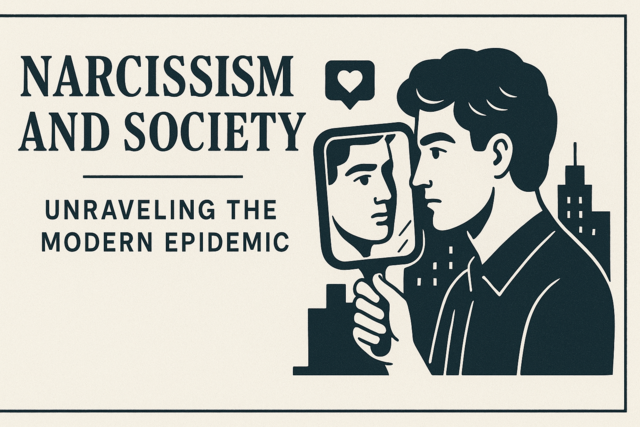 6 hours
0.6 CEUs
Narcissism and Society: Unraveling the Modern Epidemic
+ More Info
6 hours
0.6 CEUs
Narcissism and Society: Unraveling the Modern Epidemic
+ More Info
-
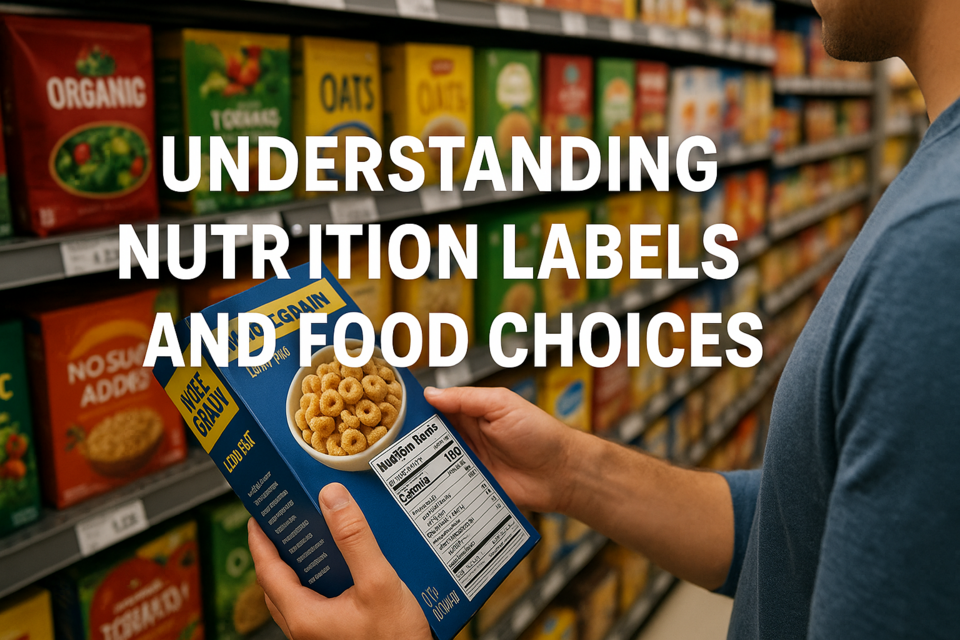 5 hours
0.5 CEUs
Understanding Nutrition Labels and Food Choices
+ More Info
5 hours
0.5 CEUs
Understanding Nutrition Labels and Food Choices
+ More Info
-
 6 hours
0.6 CEUs
Project Management for Personal Projects
+ More Info
6 hours
0.6 CEUs
Project Management for Personal Projects
+ More Info
-
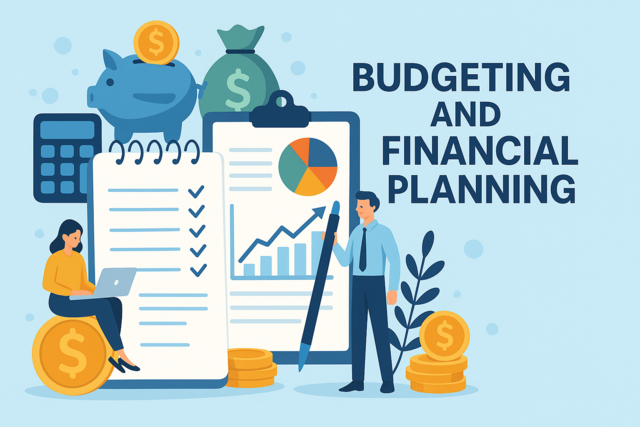 3 hours
0.3 CEUs
Budgeting and Financial Planning
+ More Info
3 hours
0.3 CEUs
Budgeting and Financial Planning
+ More Info
-
 5 hours
0.5 CEUs
Developing a Growth Mindset
+ More Info
5 hours
0.5 CEUs
Developing a Growth Mindset
+ More Info
-
 7 hours
0.7 CEUs
Sustainable Living and Eco-Friendly Practices
+ More Info
7 hours
0.7 CEUs
Sustainable Living and Eco-Friendly Practices
+ More Info
-
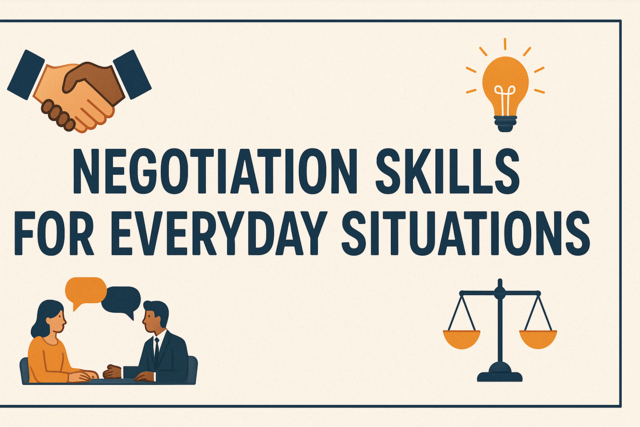 3 hours
0.3 CEUs
Negotiation Skills for Everyday Situations
+ More Info
3 hours
0.3 CEUs
Negotiation Skills for Everyday Situations
+ More Info
-
 3 hours
0.3 CEUs
Creating and Maintaining Personal Boundaries
+ More Info
3 hours
0.3 CEUs
Creating and Maintaining Personal Boundaries
+ More Info
-
 7 hours
0.7 CEUs
Developing and Maintaining Healthy Habits
+ More Info
7 hours
0.7 CEUs
Developing and Maintaining Healthy Habits
+ More Info
-
 3 hours
0.3 CEUs
Career Planning and Development
+ More Info
3 hours
0.3 CEUs
Career Planning and Development
+ More Info
-
 7 hours
0.7 CEUs
Building a Healthy Work Environment
+ More Info
7 hours
0.7 CEUs
Building a Healthy Work Environment
+ More Info
-
 7 hours
0.7 CEUs
Enhancing Empathy and Compassion
+ More Info
7 hours
0.7 CEUs
Enhancing Empathy and Compassion
+ More Info
-
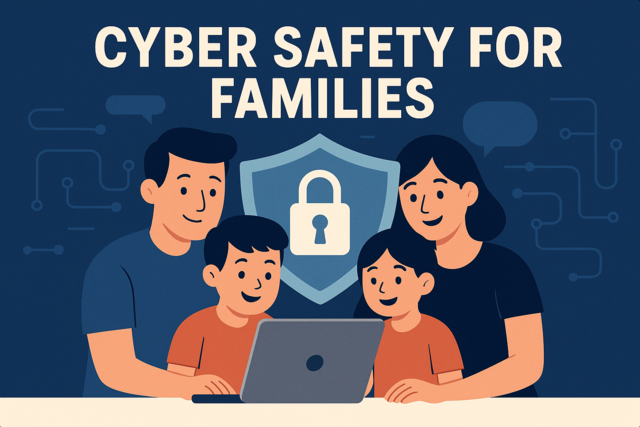 5 hours
0.5 CEUs
Cyber Safety for Families
+ More Info
5 hours
0.5 CEUs
Cyber Safety for Families
+ More Info
-
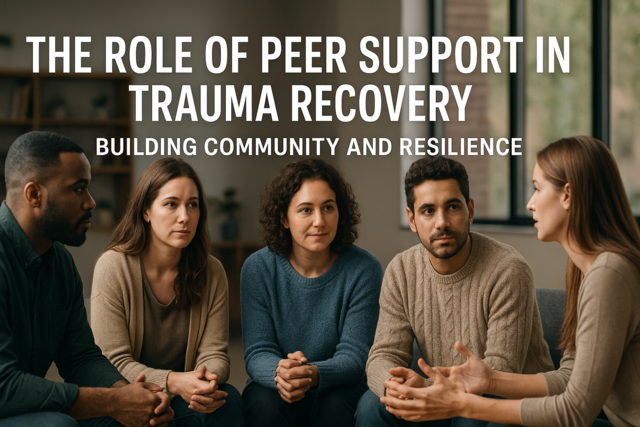 3 hours
0.3 CEUs
The Role of Peer Support in Trauma Recovery: Building Community and Resilience
+ More Info
3 hours
0.3 CEUs
The Role of Peer Support in Trauma Recovery: Building Community and Resilience
+ More Info


